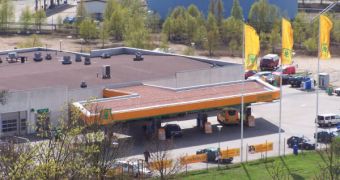A new innovation could soon find its way to cars worldwide, one that would essentially ensure that the vehicles consume 5 to 25 percent less gasoline on the same usual route than they do today. A new computer software is behind this increased level of efficiency, and the program is entrusted with the operation of the gas and the break pedals, which basically puts it in control of the machine. The new cruise control system, dubbed Sentience, has been developed by UK researchers, and is a part of the bid to increase worldwide fuel efficiency levels.
The software combines numerous high-tech features, including global positioning system (GPS) capabilities and detailed topographical maps of the regions the driver usually travels. All of these pieces of information are combined to be the complicated algorithms that make up the computer program, which determine the best possible use of the two pedals to reduce fuel consumption. Basically, on a straight and clear road, the driver will only have to steer the vehicle, as the speed and the break sequences will be automatically adjusted.
David Overton, a representative of Ordnance Survey, which is the U.K. government agency that has given the Sentience Project its detailed maps, explains that, “The car speeds up, slows down at speed humps, and stops at all the junctions, without the driver having to intervene. All the driver has to do is stick the phone on the dash and off you go.”
There are two “active ingredients” in the new driving-assistance system – a GPS-capable mobile telephone, which, for the tests, has been connected to the Orange cell phone network, and the r-cube, which is the device that actually controls the acceleration and the break of the vehicle. The latter device is produced by the Ricardo company, hence the name.
“These technologies are quite positive from the point of view of fuel consumption and safety,” intelligent automotive systems expert Joseph Sussman, who is also a professor at the Massachusetts Institute of Technology (MIT), believes. “Ultimately you could say that this will end with driver-less cars,” Overton, who has also said that the new system will be widely available for mass consumption by about 2012, adds.

 14 DAY TRIAL //
14 DAY TRIAL //